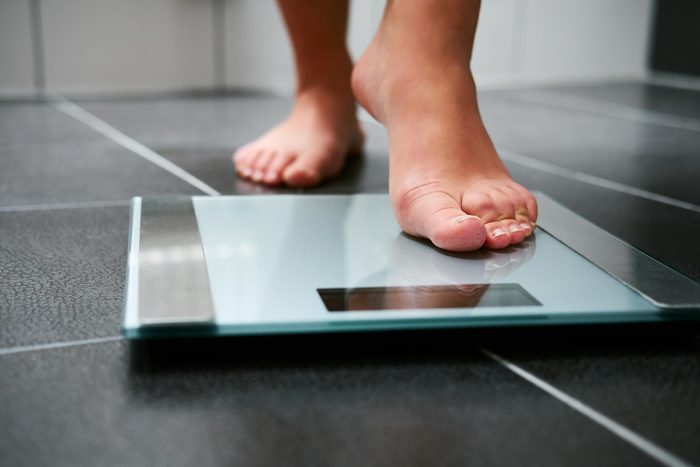
There are different levels of processing
Simply picking a blueberry is technically “food processing,” says Malina Linkas Malkani, MS, RDN, CDN, media spokesperson for the Academy of Nutrition and Dietetics. “Food processing has been happening for thousands of years, and virtually everything we eat has undergone some form of processing, so it’s impossible to say that processed foods don’t belong in a healthy diet,” she says. “That said, the level of food processing falls on a spectrum from minimally to heavily processed.” Processing is an issue when it alters a food so much that the nutritional content, quality, and value of the food changes, Malkani says. Minimally processed foods have recognizable ingredients, while the heavily processed variety typically include hard-to-pronounce names. Before you go ahead and cut out processed foods, Malkani suggests people weigh the pros and cons of any food while taking into account convenience, safety, and nutrition.

It might get worse before it gets better
The body has to get used to the lack of sugar, salt, and other added ingredients before reaping the benefits of eating fewer processed foods, according to Deborah Malkoff-Cohen, MS, RD, CDN, CDE. Typical symptoms at first might include anxiety, bloating, cravings, and headaches, among others. “These are the typical symptoms we can feel when we cut out processed foods mostly from sugar withdrawals,” she says. “How severe and how many of these you are likely to experience will depend on how processed your diet currently is and how sugar-addicted you are.” After a few days, the sugar metabolism normalizes again, and those awful symptoms and cravings go away if you don’t give in and start the vicious cycle all over again, Malkoff-Cohen says. If you’re really struggling with cravings, try better-for-you options like this healthy brownie recipe.

Your mood will eventually improve
Eating fewer processed food leads to a better mood. The digestive tract generally absorbs heavily processed, refined carbohydrates, and sugary foods rapidly post-meal, Malkani says. So it’s common to experience spikes and dips in blood sugar if you don’t also eat fiber or a balance of other nutrients to help slow the rate of absorption, according to Malkani. Skipping out on these other nutrients causes poor energy levels and irritability. There’s also a link between dopamine, serotonin, and processed sugar that shows fewer processed foods in your diet could be better for your mood, too, says Carol Aguirre, MS, RD/LDN. “High fructose corn syrup, sugar, and artificial ingredients stimulate the release of a mood-boosting neurotransmitter called serotonin,” she says. “This wouldn’t be so bad if your brain’s serotonin stores weren’t in limited supply; constantly depleting serotonin levels can mimic depression symptoms.”
Start your morning off on the right foot with one of these low-calorie smoothie recipes.

You’ll have better concentration
Heavily processed foods usually have lots of sugar or high fructose corn syrup. Although the human body does need some sugar for the brain to function properly, these sugars are best found naturally in fruits and vegetables, according to Aguirre. Too much sugar-laden processed foods, on the other hand, can throw your brain off balance and make it harder to concentrate, she says. “Having low blood sugar—common after a sugar crash—can cause anxiety, heart palpitations, and fatigue, which can all make it next to impossible to focus and complete tasks,” Aguirre says. “Avoiding large amounts of processed foods can keep your head clear.” And be sure to steer clear of these sneaky foods that can spike your blood sugar.

You’ll feel less bloated
Sodium ingredients are mostly used in processed foods to help keep them fresh, according to HuffPost. When you cut out processed foods with these high-sodium ingredients it has a positive impact on belly bloat. “Most highly processed foods are high in sodium, which can cause water retention,” says Andy Bellatti, RD. Poor hydration levels and lots of sodium make the body retain water. Your body holds onto any and all water causing bloating, puffiness, or swelling, Healthline reports.

Your flavour sensitivity could change
Cutting down on processed foods could change how strongly you taste certain flavours, according to Harvard Medical School. One study on salt found that people on low-sodium diets ended up eventually preferring the taste of salt-less foods the longer they were on low-sodium diets. After their diet, they taste tested regularly salted foods and found them to be too salty. Some studies show a similar pattern for people on low-fat diets. Here are 25 reasons why cutting back on sugar could benefit your health.

You’ll sleep better
Processed foods can disrupt your sleep cycle for a few reasons. One is the effect that eating these foods has on blood sugar. Keeping blood sugar steady—by avoiding refined and processed foods such as sodas and cereals—helps you sleep normally, according to the National Sleep Foundation. The Foundation also reports that the more sugar you eat during the day, the more often you’re going to wake up in the middle of the night. Heavily processed foods also tend to be higher in fat which—if eating them near bedtime—can contribute to indigestion or heartburn that often disrupts sleep too, Malkani says.
These are the nine canned foods nutritionists actually buy – and two they never buy.

Your digestive health will improve
The natural fiber in whole grains isn’t in processed foods Malkani says. The body needs this fiber to have a healthy digestion system. “Fiber helps bulk up stool and keep it travelling through the intestines, preventing constipation,” she says. “It also acts as food for the ‘good’ bacteria that help improve overall digestive health.” So eating more whole foods instead of the processed kind could help your digestive health. These 11 diseases can actually start with your gut bacteria.

You might lose weight
Limiting or cutting out processed foods could cause weight loss, according to Aguirre. These foods tend to carry lots of extra, “empty” calories, she says, and could be what’s sabotaging your weight loss efforts. “Processed foods lack nutrients and fiber that helps fill you up, which can lead to binging later,” Aguirre says. A recent study published in JAMA also found that people who cut out highly processed foods, as well as added sugar and refined grains, lost significant amounts of weight throughout a year. The patients didn’t limit calories or portion sizes, and they focused on eating plenty of vegetables and whole foods, the New York Times reports. Aguirre also suggests choosing whole foods to nourish and fuel your body efficiently.

Your skin could clear up
Recent studies point to a strong link between diet and skin health. In a published review of some of these dermatology studies, researchers found that diets emphasizing foods “in their natural state” over highly processed ones have a positive impact on the skin in terms of acne and inflammation.
Try these creative cooking tips to beat your veggie boredom.

You’ll lower your risk for disease and other health issues
In the long-term, Malkoff-Cohen says that cutting down on processed foods could reduce cholesterol, blood pressure, and risk of cancer as well as decrease inflammation, and risk of fatty liver and heart diseases. Next, don’t miss these silent signs your body needs more carbs.
